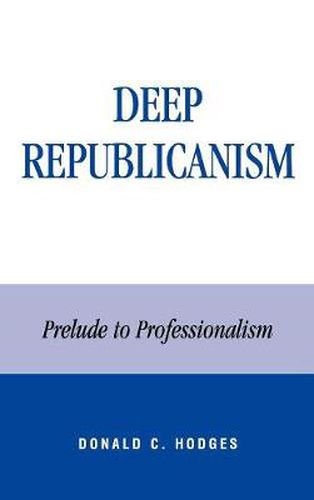Readings Newsletter
Become a Readings Member to make your shopping experience even easier.
Sign in or sign up for free!
You’re not far away from qualifying for FREE standard shipping within Australia
You’ve qualified for FREE standard shipping within Australia
The cart is loading…






This work establishes the importance of Machiavelli’s radical republican agenda in understanding the major revolutions of the modern world. Donald Hodge’s nuanced analysis of The Discourse of Levy reveals a subversive republicanism in Machiavelli’s theorizing that is at odds with the demoliberalism often perceived as the work’s primary political agenda. Hodges follows this strand of republicanism through history, providing an account of how these two political philosophies vied with each other throughout much of modern history in conflicts that culminated in the Russian and American revolutions. A treatment of Machiavelli’s political agenda, its implementation by numerous historical actors, and its legacy, professionalism, Deep Republicanism examines aspects of Machiavelli’s work that have often been overlooked. It also sheds light on Machiavelli himself, whose famously devious and crafty writing style was partly motivated by his political vulnerability in fifteenth-century Florence. Hodges’ study is both an examination of the historical influence of Machiavelli’s thought and a testament to the enduring power, influence and subtlety of one of the best-known Western political philosophers.
$9.00 standard shipping within Australia
FREE standard shipping within Australia for orders over $100.00
Express & International shipping calculated at checkout
This work establishes the importance of Machiavelli’s radical republican agenda in understanding the major revolutions of the modern world. Donald Hodge’s nuanced analysis of The Discourse of Levy reveals a subversive republicanism in Machiavelli’s theorizing that is at odds with the demoliberalism often perceived as the work’s primary political agenda. Hodges follows this strand of republicanism through history, providing an account of how these two political philosophies vied with each other throughout much of modern history in conflicts that culminated in the Russian and American revolutions. A treatment of Machiavelli’s political agenda, its implementation by numerous historical actors, and its legacy, professionalism, Deep Republicanism examines aspects of Machiavelli’s work that have often been overlooked. It also sheds light on Machiavelli himself, whose famously devious and crafty writing style was partly motivated by his political vulnerability in fifteenth-century Florence. Hodges’ study is both an examination of the historical influence of Machiavelli’s thought and a testament to the enduring power, influence and subtlety of one of the best-known Western political philosophers.